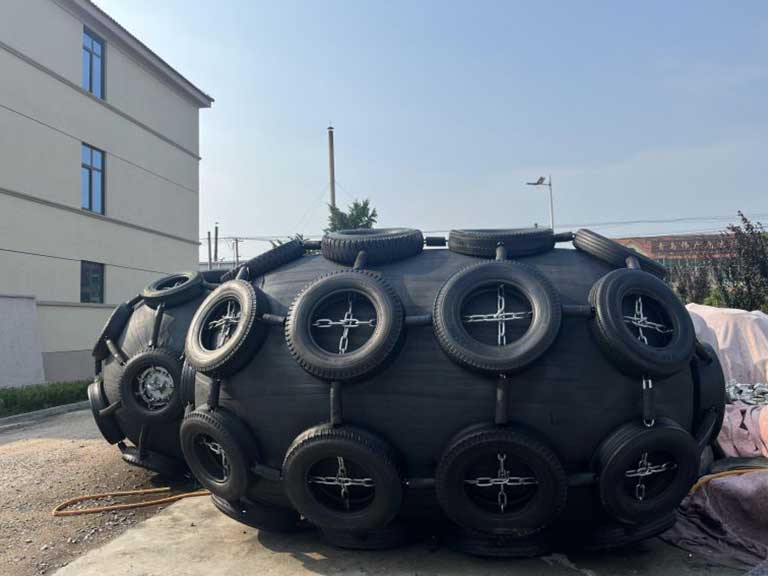When you stop or stay, are you sure that your boat is properly protected? It is always possible for damage to happen to your boat’s deck, paint, or varnish. But if you have the right fenders, you can greatly reduce this risk. It is very important to choose the right fenders for your boat to avoid expensive fixes and keep it in good shape.
As a professional marine equipment dealer, Henger Shipping Supplies has been committed to producing high-quality marine fenders. These fenders are an important part of boat safety for all kinds of boats. This guide will tell you everything you need to know to pick the right fenders, including types of covers, sizes, placement, and upkeep.
Table of Contents
Understanding Marine Fenders and Their Importance
What Are Marine Fenders? Marine fenders absorb pressure and avoid damage to your boat by acting as a barrier between it and the dock or other boats. At first, fenders were made of knitted hemp. These days, they are made from rubber, PVC, and special plastics, which make them last longer and protect you better. They are normally dark blue, red, or white and come in different sizes, like cylinder, sphere, and flat.
In different landing situations, fenders do different things. The right fender is very important whether you’re docking at a pier, going through rough water, or teaming up with other boats. For any boat owner who wants to protect their property, high-quality fenders are a must-have item. Fenders save the hull and superstructure from expensive damage by absorbing contact and spreading pressure.
Henger Shipping Supplies makes high-quality marine fenders that are made to protect boats in a variety of marine settings. Marine fenders from our wide selection are made to fit the needs of different docking situations. They can keep your boat safe no matter what.
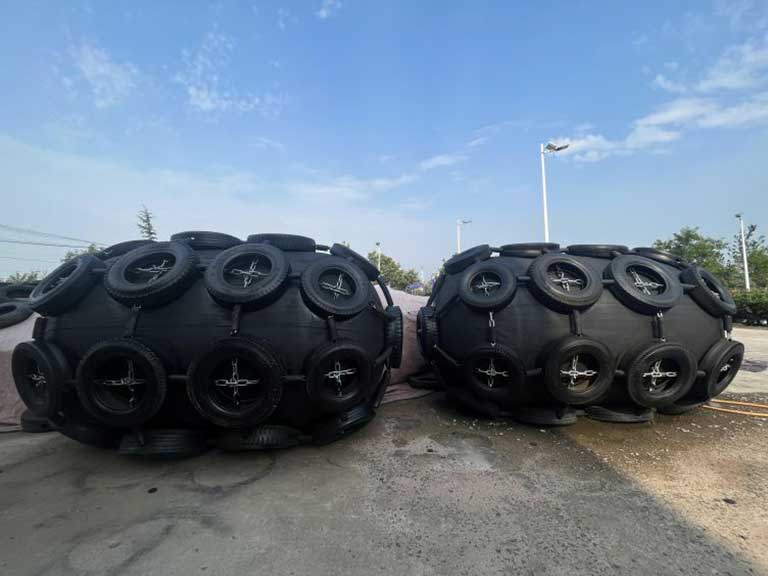
Types of Marine Fenders for Different Vessels
Different ships require different types of marine fenders. Henger Shipping Supplies offers a wide range of marine fender products to meet the different needs of ship owners. This ensures that every type of ship can find the right fender.
Cylindrical Fenders: In the naval business, cylindrical fenders are the most common type. Because they can be used in a lot of different situations and work well most of the time. High-quality cylinder-shaped fenders with reinforced sides and long-lasting materials. They can handle being compressed over and over and being exposed to the elements for many years.
Spherical Fenders: Spherical fenders offer the best protection at certain contact spots and are especially useful when moving around in small areas. Spherical fenders are made with quality PVC materials and strengthened holes that keep them from deforming. Even when bigger boats put a lot of pressure on them.
Flat Fenders: Flat fenders are good for boats that don’t have a lot of storage room. They cover well and are easy to store when not in use. Flat fenders are usually made of foam and are very light and easy to use.
Specialty Fenders: Some types of fenders, like transom fenders, low freeboard fenders, and dock fenders. They are designed to meet special safety needs that regular fenders might not be able to meet.
Boat owners can choose the best safety system for their boat based on its features and the way it usually moors by learning about the different sizes and designs of marine fenders. Because each type of fender has its own benefits and best uses, many expert boaters keep a number of different types on board.
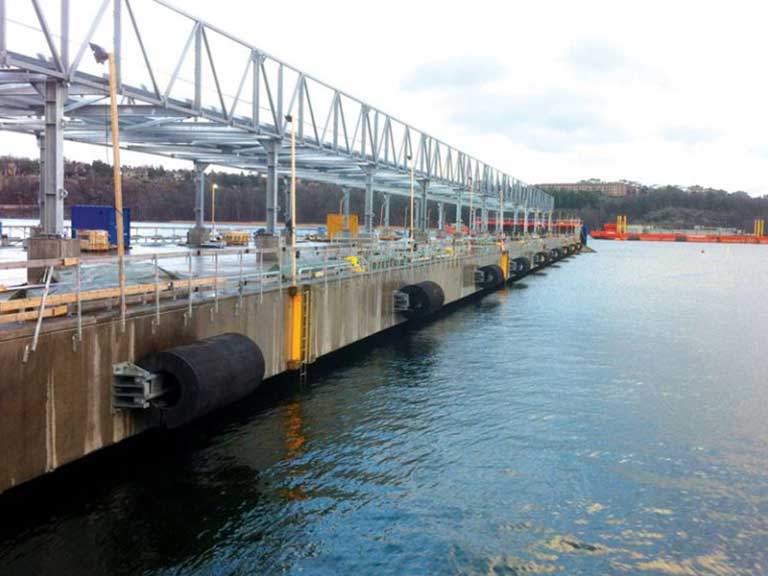
How to Choose The Right Marine Fenders for Your Boat
At Henger Shipping Supplies, we know how important it is to choose the right marine fenders to keep your boat safe. If you have the right fenders, you can dock and stop your boat without worrying about damage. This will keep it in good shape.
Boat Size and Type: Whatever size fender you get will depend on how long your boat is. Larger vessels may require larger diameter fenders, or even special types of fenders such as conical fenders. Round fenders need about 2 inches in diameter for every 4 to 5 feet of boat length. Cylinder fenders need about 1 inch of diameter for every 4 to 5 feet of boat length. This rule of thumb helps you choose the right size for your boat.
Boat Weight and Hull Design: Another important thing that affects fender choice is the weight of the boat. Heavy ships move faster, so their fenders need to be bigger and stronger to receive the energy of a possible hit. The form of your boat’s hull is also very important. Boats with unusual hull shapes or parts that stick out may need different fender layouts to be properly protected.
Typical Mooring Conditions: Boats that are often in rough water, strong currents, or big changes in the tide need stronger fenders to protect them. For commercial vessels or vessels used in harsh environments, we generally recommend choosing fenders that are larger than the standard size. This ensures optimal protection in all circumstances.
By thinking about these things and following the tips given. You can choose the best marine fenders for your boat, protecting it and making sure they last a long time.

Proper Fender Placement and Installation
To get the most safety, you need to know how to put and install fenders correctly. At Henger Shipping Supplies, we give full instructions on how to place fenders so that ships are as safe as possible.
Number of Fenders Required: As a general rule, one fender for every 10 feet of depth is needed for safety. And all boats, no matter how big or small, need at least three fenders. One 20-foot boat would need three fenders, while a 40-foot boat would need four.
Vertical vs. Horizontal Placement: When choosing between vertical and horizontal suspension, keep in mind that vertical suspension is best suited for flat surfaces such as docks. Horizontal suspension is best suited for protruding pile foundations or buildings.
Choose the Right Knots and Lines: Using the right knots and lines to tie down fenders makes sure they stay in place even when the boat moves or the weather changes. For easy moving, we suggest using clove hitches or flexible fender hooks. Do not use lifelines to connect fender lines. Instead, use strong anchor points like cleats or stanchion bases.
By following these tips, you can make sure that your boat is safe from damage while it’s docked. For full vessel safety, you should also make changes to your fender setup as the weather changes.
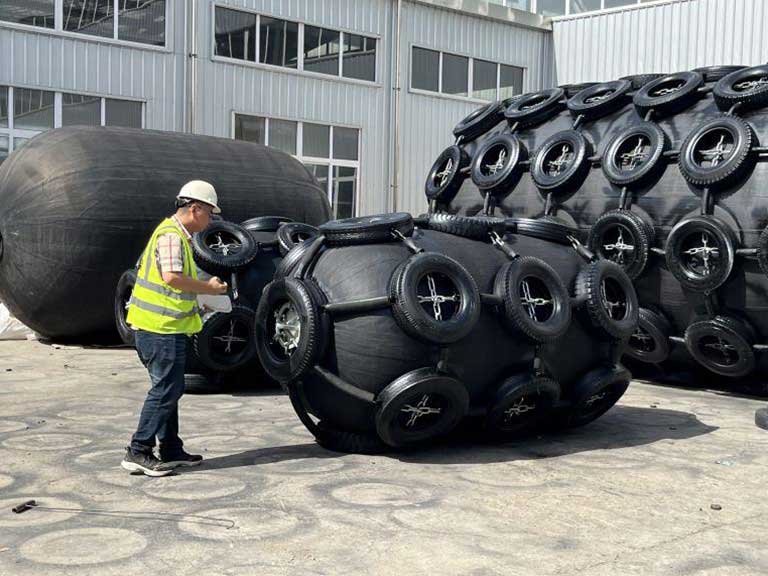
Maintenance and Care for Marine Fenders
Regular maintenance is necessary to make sure that your marine fenders continue to protect your boat well. At Henger Shipping Supplies, we emphasize the importance of proper maintenance of fenders. So, they last longer and keep working well.
Cleaning and Storing Your Fenders: It is best to clean your fenders with water and light soap. Do not use strong chemicals like alcohol on the materials because they can damage them. To keep your fenders from getting damaged by UV light, store them in a dry, shady place after cleaning. Use fender covers that can be washed to keep them clean and safe.
Checking Pressure and Condition Regularly: For pneumatic fenders, it is necessary to check the pressure frequently. If the pressure is too low, it won’t cover as well, and if it’s too high, it can wear out faster. Look over your fenders often for signs of damage, wear, or abrasions.
Fender Accessories for Enhanced Protection: Accessories for your fenders, like covers and storage options, can make them safer and last longer. You can keep your fenders in order and easy to get to by mounting fender baskets on porches or decks.
By using these care tips, you can keep your marine fenders in good shape so they protect your boat the best way possible. Regular maintenance not only makes your fenders last longer. In addition, it also saves you a lot of money compared to fixing damage to the ship caused by fenders that aren’t working right or are breaking.
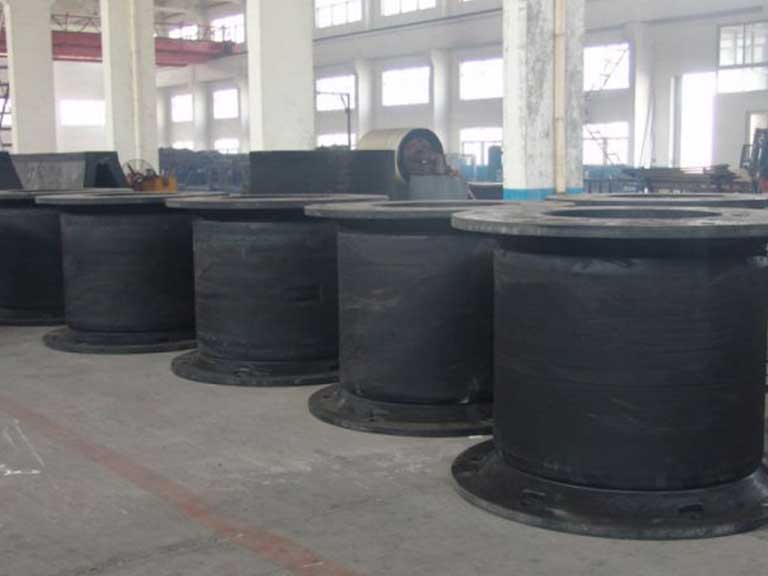
Conclusion
Ultimately, the choice of marine fenders depends on several key factors. These include vessel size, weight, and typical docking conditions. By considering factors such as ship size, hull design, and berthing conditions, you can invest in high-quality fenders from reputable manufacturers. This will ensure that your ship is properly protected. Regular maintenance, including cleaning and pressure checks, will extend the life of your fenders.
Protecting your investment is crucial. Spending relatively little money on high-quality fenders is far better than spending a lot of money on ship repairs. At Henger Shipping Supplies, we are committed to providing high-quality marine fenders and expert guidance. This ensures that your ship is optimally protected in all circumstances.
FAQ
What size fender should I use for my boat?
To determine the correct fender size, consider your boat’s length and hull design. A general rule is to use fenders that are 1-2 inches in diameter for every 10 feet of boat length.
How many fenders do I need for my vessel?
The number of fenders needed depends on the size of your boat and typical mooring conditions. As a rule of thumb, use at least 3-4 fenders, spaced evenly along the hull, to provide adequate protection.
What type of fender is best for my boat’s hull design?
Different hull designs require different types of fenders. For example, cylindrical fenders are suitable for most boats, while spherical fenders provide maximum protection at contact points.
How do I properly place and secure fenders on my boat?
Fenders should be placed vertically or horizontally along the hull, depending on the docking scenario. Use the right knots and lines to secure fenders in place, ensuring they are not too tight or too loose.
How do I maintain and care for my marine fenders?
Regularly clean and store your fenders when not in use. Check pressure and condition regularly to ensure they remain effective. Consider using fender accessories, such as covers or bags, for enhanced protection.
Are there specialty fenders for specific docking scenarios?
Yes, there are specialty fenders designed for specific docking scenarios, such as transom fenders, low freeboard fenders, and dock fenders. These fenders provide tailored protection for unique docking situations.

